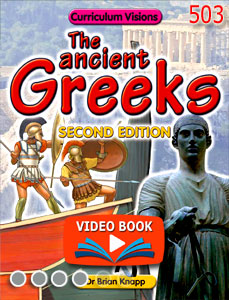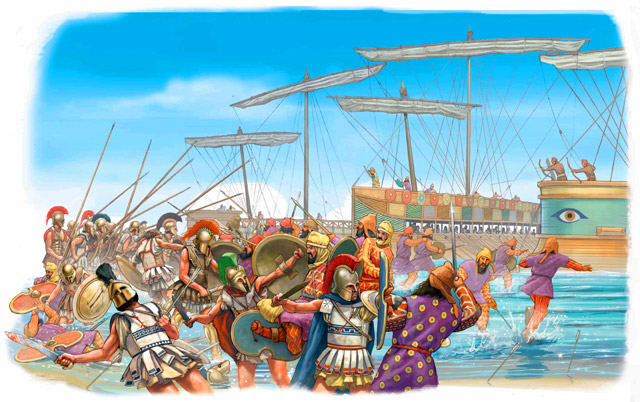Marathon is a coastal town just to the north of Athens and opposite the lands of the Persians. It was where the Persian battle fleet landed and were confronted by the Athenians in Ancient Greek times.
The Battle of Marathon took place in 490 BC. The battle was the first attempt by King Darius I of Persia, to defeat Greece and make it part of the Persian empire.
Greece was made of a number of city states, each ruled separately. The Persian attack was against Athens. The Persians landed in the wide bay at Marathon, but the coast has rocky cliffs and the Athenians stopped them getting inland.
The Greeks were afraid of the Persian cavalry, but while the cavalry were away trying to find another route inland, the Athenians attacked the Persian foot soldiers. The Persian army broke in panic towards their ships, and large numbers were slaughtered. This stopped the Persian attempt to conquer Greece, at least for a time.
The battle was a vital moment in history because it showed that the Greeks could beat the Persians, yet it is more popularly remembered for a myth, not an actual event - the marathon race.
The race called the Marathon comes from the legend of Pheidippides, a Greek messenger. The myth is that he was sent from the battlefield of Marathon to Athens to announce that the Persians had been defeated in the Battle of Marathon. The myth is that he ran the entire distance without stopping and, on reaching Athens, said "we have won", before collapsing and dying. But this account was first written down some 500 years after the event.
By contrast, the Greek historian Herodotus said that Pheidippides was the messenger who ran from Athens to Sparta asking for help, and then ran back - some 240km/150mi each way. Herodotus does not mention a messenger sent from Marathon to Athens.
So, like so many events of Ancient Greek times, although some kind of messenger was probably sent to the Spartans, there is little real evidence for either run, let alone a non-stop run. But it makes a very dramatic story.





